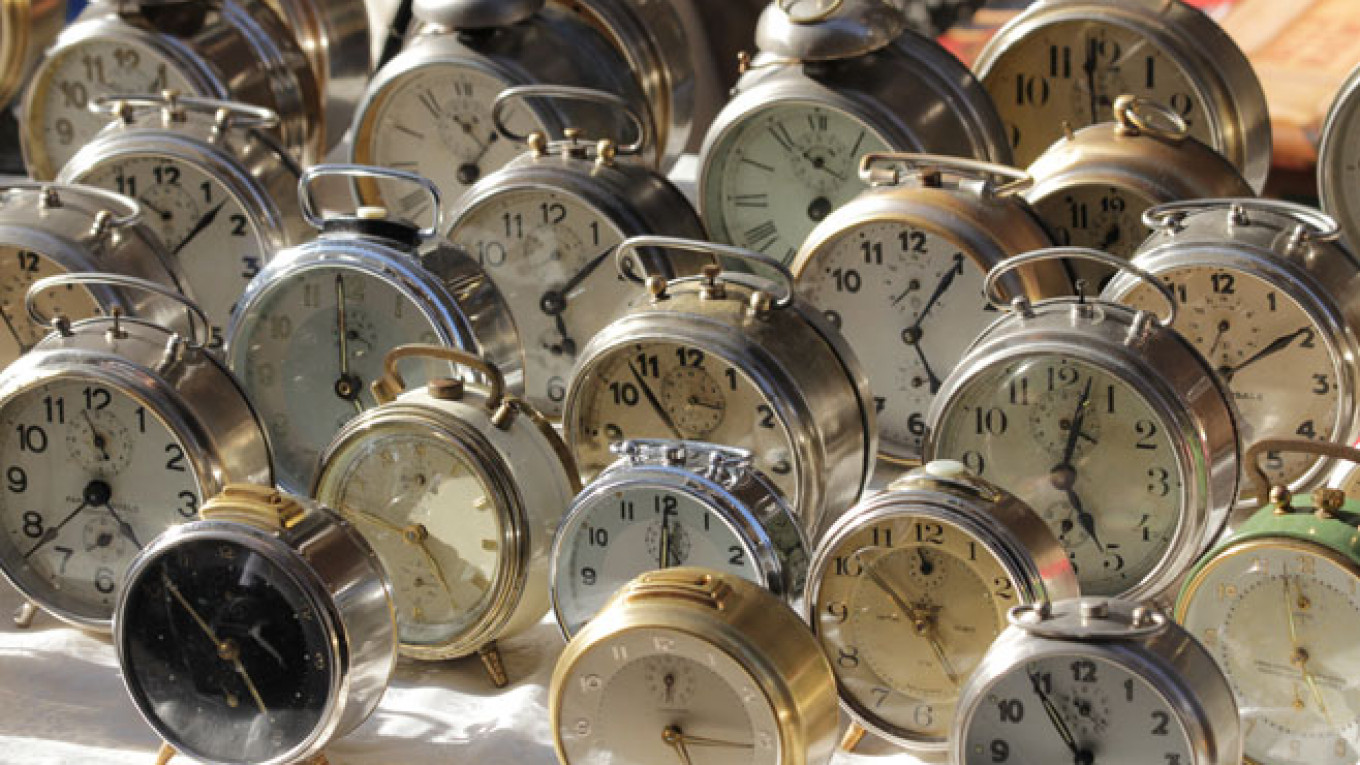Locals in the city of Chita in eastern Siberia have staged a rare public protest against the Kremlin-approved decision to introduce "permanent wintertime" in Russia.
After having practiced daylight saving time since 1917, Russia canceled it in 2011, opting to remain in standard time throughout the year. But this October, it reversed the decision, switching permanently to daylight saving time.
The recent change to permanent winter time has crippled social, economic and cultural life in the Zabaikalsky region, protesters in regional capital Chita said, local news website Zabmedia.ru reported.
With nighttime starting at 4 p.m., locals are reluctant to shop after work — hurting business, farmers have to work with flashlights, and children avoid playing outdoors, protesters said.
The only form of entertainment locals have left to enjoy is the "zombie-box," also known as television, angry Chita residents were cited as saying.
The rally reportedly gathered upward of 1,000 people, a rare occasion for protests outside Moscow. Organizers ran out of pens to sign the petition against "permanent wintertime."
The petition is to be forwarded to the federal government and the State Duma, neither of which has so far commented on the protest.
The Zabaikalsky government, in an indirect recognition of the issue, said earlier this month it was drafting a recommendation for regional employers to push the start of the workday to a relatively early 8 a.m. in a bid to let the locals catch a bit of winter sunshine.
The Kremlin never offered a comprehensive explanation for changing the time twice in four years.
Apparently reflecting this, the population remains split on the "permanent wintertime," with 33 percent endorsing the move, 35 percent supporting annual clock adjustment and 19 percent favoring "permanent summertime," the state-run pollster VTsIOM said last month.
Contact the author at a.eremenko@imedia.ru
A Message from The Moscow Times:
Dear readers,
We are facing unprecedented challenges. Russia's Prosecutor General's Office has designated The Moscow Times as an "undesirable" organization, criminalizing our work and putting our staff at risk of prosecution. This follows our earlier unjust labeling as a "foreign agent."
These actions are direct attempts to silence independent journalism in Russia. The authorities claim our work "discredits the decisions of the Russian leadership." We see things differently: we strive to provide accurate, unbiased reporting on Russia.
We, the journalists of The Moscow Times, refuse to be silenced. But to continue our work, we need your help.
Your support, no matter how small, makes a world of difference. If you can, please support us monthly starting from just $2. It's quick to set up, and every contribution makes a significant impact.
By supporting The Moscow Times, you're defending open, independent journalism in the face of repression. Thank you for standing with us.
Remind me later.







